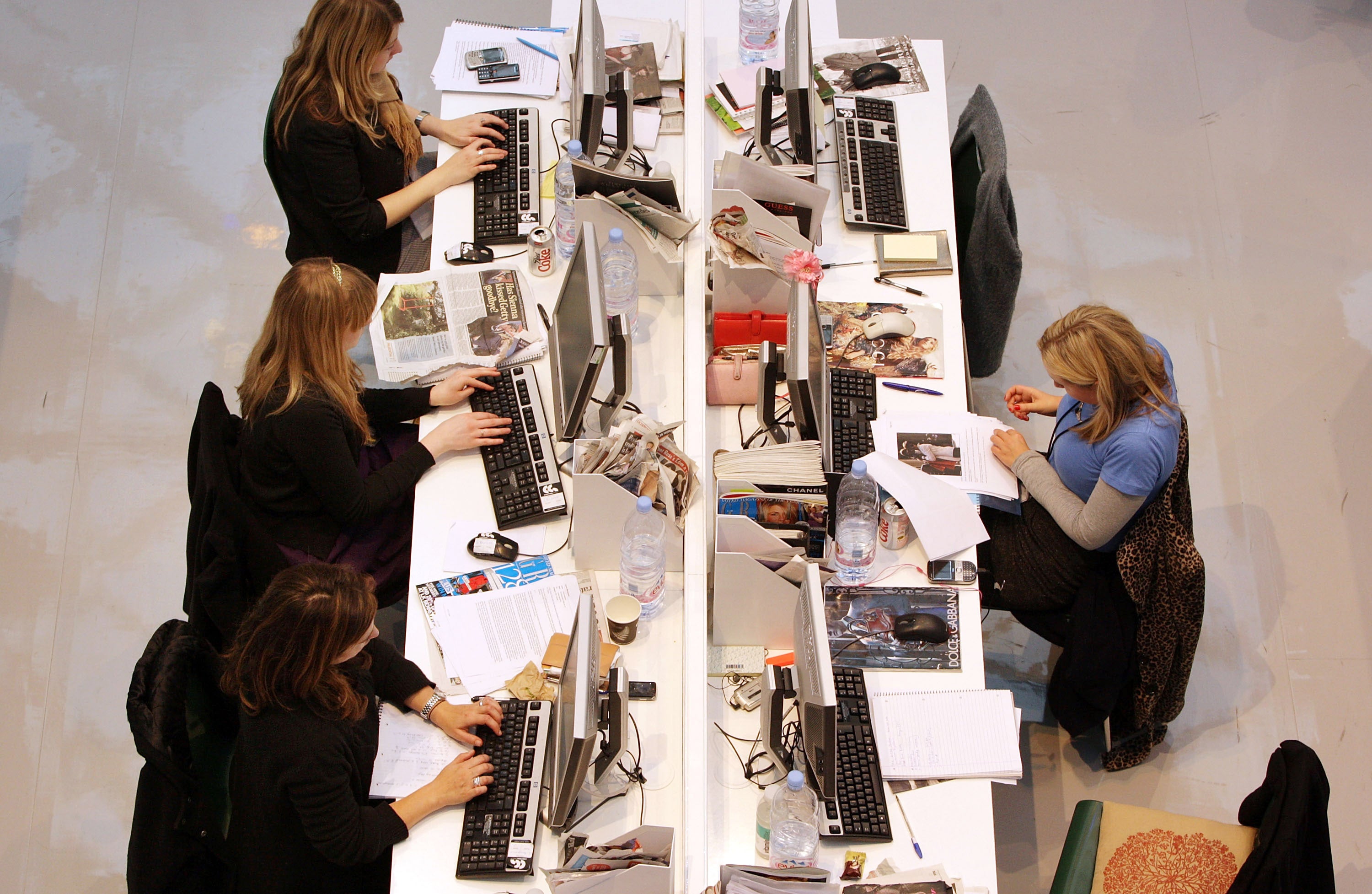How eco-friendly are UK offices?
Several of those polled said they were disappointed their employer hadn’t used the lockdowns to improve how eco friendly their office is

Britain’s workplaces are still shamefully eco-unfriendly – say 45 per cent of their staff.
A lack of food waste bins, computers constantly running and printers endlessly churning out paper are some of the top green gripes among workers.
Others are annoyed by kettles being boiled all day, lights being left on and a stack of single-use cups by the water cooler.
The survey of 2,000 office workers found 46 per cent believe the introduction of green initiatives in their workplace is an ‘afterthought’, while six in 10 claim employees are left to take the lead.
And more than one third are disappointed their employer didn’t use the lockdowns of the past 18 months to implement and improve eco practices.
The research was carried out by hygiene and health company Essity, which commissioned the survey to launch Tork PaperCircle, the UK’s first paper towel recycling system, which is being installed in Astra Zeneca’s new UK office.
This recycling service enables businesses to go ‘circular’ by collecting and recycling used paper hand towels and turning them into new tissue products, converting waste into a resource.
Essity’s spokesman said: “We spend so much of our time in the workplace, so it’s a perfect place to set an example.
“There has been a definite shift over the past 18 months in our general attitudes towards how to be environmentally friendly – people now seem to be taking the issue more seriously than ever before.
“Working from home has led to people giving more thought to their own actions towards the future of the planet, and it seems many had assumed their employers would give the same attention to the workplace.”
The poll found 42 per cent of adults became far more eco conscious while working from home, while 46 per cent maintained their efforts to go green.
As a consequence, almost four in 10 admit they are more aware than ever before of how green their office is, but 48 per cent acknowledge their employer probably doesn’t encourage better practices due to the cost.
A further 38 per cent aren’t sure their boss actually knows how to implement good eco measures, while 40 per cent say they don’t appear to care for the planet at all.
But a resounding eight in 10 adults do want to see a more environmentally friendly office – and an end to things like running taps, petrol company vehicles, paper drinks cups going into general waste and electric hand dryers wasting energy all day.
If employers were to initiate more eco-friendly practices, six in 10 office workers believe all staff would react positively, according to the OnePoll data.
Measures such as desk plants to improve air quality, bringing in use of recycled products – from paper towels to printer paper and turning off all lights, electricity and heating every evening would be well received.
While one fifth would like to see use of eco-friendly cleaning products, one quarter welcome green initiatives to get everyone involved and 27 per cent want to see employers encourage green commuting.
This comes after many are frustrated to have returned to work to see no electric car charging ports, no bicycle storage and no cycle to work scheme.
In fact, adults are now taking their carbon footprint so seriously, a few have considered leaving a job due to the lack of green practices in the workplace.
The spokesman for Essity said: “There are small measures employers can take to be ‘greener’ without breaking the bank.
“Being eco-friendly can be a daunting task, particularly if you don’t know too much about how to improve things.
“But there are simple steps, such as improving recycling practices and reducing use of energy, which cost very little.”
SWNS
Join our commenting forum
Join thought-provoking conversations, follow other Independent readers and see their replies
Comments
Bookmark popover
Removed from bookmarks